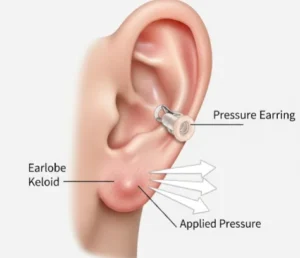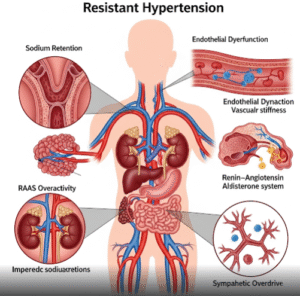Overview
Laryngitis is an inflammation of the larynx, commonly known as the voice box, which causes hoarseness or loss of voice. It can be acute or chronic and results from infection, overuse, or irritation of the vocal cords. Though usually temporary, laryngitis can affect daily communication and comfort.
What Is Laryngitis?
Laryngitis refers to swelling and irritation of the larynx, particularly the vocal cords. This inflammation disrupts normal voice production, causing hoarseness or voice loss. Acute laryngitis typically lasts less than three weeks, while chronic laryngitis persists longer and may indicate underlying issues.
Symptoms
- Hoarseness or weak voice
- Loss of voice
- Throat pain or irritation
- Dry cough
- Sore throat
- Difficulty swallowing (less common)
- Tickling sensation in the throat
Causes
- Viral infections (most common cause)
- Bacterial infections (less common)
- Voice overuse or strain (e.g., shouting, singing)
- Allergies
- Exposure to irritants such as smoke, chemicals, or pollution
- Gastroesophageal reflux disease (GERD)
- Smoking
Risk Factors
- Frequent upper respiratory infections
- Smoking or exposure to secondhand smoke
- Professional voice users (singers, teachers, speakers)
- Allergies or asthma
- Acid reflux disease
- Exposure to environmental irritants
Complications
- Chronic laryngitis leading to vocal cord damage
- Persistent voice changes
- Development of vocal nodules or polyps
- Rarely, cancerous changes in long-term smokers or those with chronic irritation
Prevention
- Avoid excessive voice strain
- Stay hydrated and rest your voice when needed
- Avoid smoking and exposure to smoke
- Manage acid reflux with dietary and lifestyle changes
- Use humidifiers to prevent throat dryness
- Treat allergies promptly
- Practice good hygiene to reduce infections
Treatment Options in Korea
Korea offers effective treatments for laryngitis through modern and integrative approaches:
- Medical Treatment: Use of corticosteroids, antibiotics (if bacterial), and anti-reflux medications as needed.
- Voice Therapy: Speech therapists help restore proper voice use and reduce strain.
- Lifestyle Modification Guidance: Doctors provide advice on voice care, smoking cessation, and reflux management.
- Complementary Therapies: Acupuncture and herbal treatments are available to reduce inflammation and promote healing.
- Advanced Diagnostic Tools: Laryngoscopy and stroboscopy for detailed vocal cord assessment.
Specialized ENT clinics and hospitals in Korea ensure personalized care, helping patients recover voice quality and prevent recurrence.













